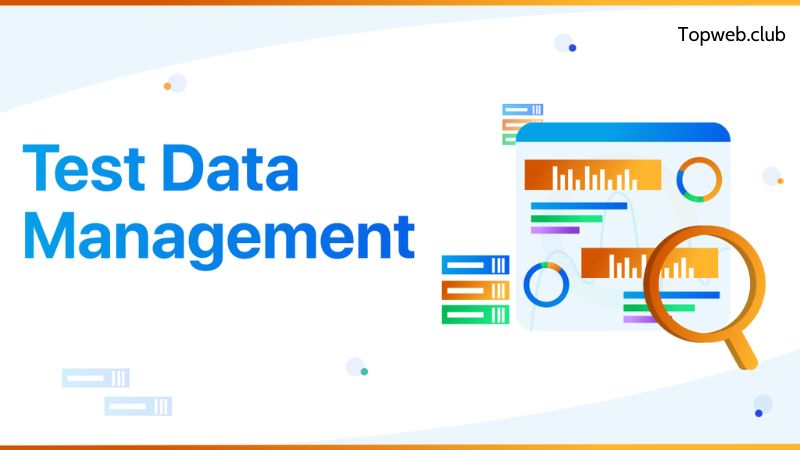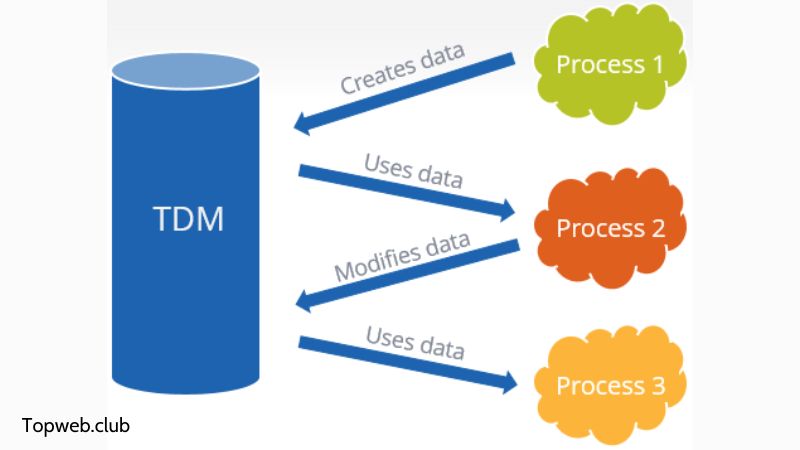Test Data Management (TDM) in software testing is a fundamental process that deals with creating, maintaining, and provisioning data required for testing applications. TDM ensures that the data used in various testing activities is accurate, relevant, and available at the right time, ultimately contributing to the effectiveness and efficiency of software testing processes. This article from Topweb.club delves into the intricacies of test data management, its key components, benefits, challenges, and best practices.
What is Test Data Management in Software Testing?
Test Data Management (TDM) in software testing is the process of managing the data required for testing applications effectively and efficiently. It involves creating, maintaining, and managing test data sets that simulate the actual data used in a production environment. The goal of TDM is to ensure that the test data is accurate, relevant, and available when needed to support various testing activities such as unit testing, integration testing, system testing, and acceptance testing.

Key Components of Test Data Management
1. Data Creation
Understanding what is test data management in software testing involves recognizing the importance of data creation. This component encompasses several methods:
- Synthetic Data Generation: This method involves creating artificial data that mimics real production data. Synthetic data generation is crucial because it allows testers to use realistic data without exposing sensitive information.
- Data Masking: Often, production data contains sensitive information that cannot be used directly for testing due to privacy concerns. Data masking helps obfuscate this sensitive information, ensuring data privacy while maintaining its usability.
- Subsetting: Creating a representative sample of a larger dataset can significantly reduce the volume of data needed for testing. Subsetting helps in managing large datasets by focusing on a smaller, yet comprehensive, portion of data.
2. Data Maintenance
Another crucial aspect of what is test data management in software testing is data maintenance. This includes:
- Data Refresh: Test data must be periodically updated to reflect changes in the production environment. This ensures that testing scenarios are based on the most current and relevant data.
- Data Consistency: Maintaining consistency of test data across different environments and test cycles is essential. Data consistency helps in avoiding discrepancies and ensuring reliable test results.
3. Data Provisioning
Efficient data provisioning is a core part of understanding what is test data management in software testing. It involves:
- Data Allocation: This process ensures that the right data is available to the right tests at the right time. Proper data allocation minimizes delays and enhances testing efficiency.
- Environment Management: Ensuring that test data is correctly configured and available across various test environments is vital for seamless testing operations.

4. Data Compliance
An essential element of what is test data management in software testing is ensuring data compliance. This involves:
- Regulatory Compliance: Test data management practices must comply with data protection regulations such as GDPR and HIPAA. Ensuring regulatory compliance mitigates legal and financial risks.
- Security: Protecting test data from unauthorized access and breaches is critical. Implementing robust security measures helps in safeguarding sensitive information.
Benefits of Effective Test Data Management
Understanding what is test data management in software testing reveals several benefits:
- Improved Test Quality: Accurate and relevant test data leads to more realistic testing scenarios, enhancing the overall quality of testing.
- Reduced Test Cycle Time: Efficient TDM processes can speed up the availability of test data, reducing delays in the testing process.
- Cost Savings: Effective TDM reduces the costs associated with storing and managing large volumes of data.
- Enhanced Compliance: Proper management of sensitive data ensures compliance with regulatory requirements, reducing legal and financial risks.
Challenges in Test Data Management
Understanding what is test data management in software testing also involves recognizing the challenges:
- Data Complexity: Managing complex data relationships and dependencies across different systems can be challenging.
- Data Volume: Handling large volumes of data while ensuring quick access and performance can be difficult.
- Data Privacy: Protecting sensitive information in test data from breaches and misuse requires robust security measures.
- Coordination: Aligning TDM processes with development and testing activities across various teams and environments can be challenging.
Best Practices for Test Data Management
To effectively implement what is test data management in software testing, consider these best practices:
- Automate TDM Processes: Use automated tools for data generation, masking, and provisioning to increase efficiency and accuracy. Automation reduces manual effort and errors.

- Use Data Virtualization: Data virtualization techniques provide testers with real-time access to data without the need for physical copies. This approach enhances data availability and reduces storage requirements.
- Implement Data Masking: Applying masking techniques to protect sensitive information while maintaining data usability is crucial for compliance and security.
- Maintain Data Versioning: Keeping track of different versions of test data sets ensures consistency and traceability. Versioning helps in identifying changes and maintaining data integrity.
- Regularly Refresh Test Data: Periodic updates of test data keep it in sync with the production environment, ensuring that testing scenarios are based on current and relevant data.
Conclusion
What is test data management in software testing? It is an integral process that ensures the availability, accuracy, and security of data used for testing applications. By understanding and implementing effective TDM strategies, organizations can enhance the efficiency, quality, and compliance of their testing processes. Key components such as data creation, maintenance, provisioning, and compliance form the backbone of TDM. Recognizing the benefits and challenges associated with TDM, along with following best practices, can lead to significant improvements in the overall software development lifecycle.
In the realm of software testing, test data management is not just a support function but a critical enabler of successful testing outcomes. As we continue to explore what is test data management in software testing, it becomes clear that managing test data effectively is essential for delivering high-quality software in a timely and cost-efficient manner. Through diligent management of test data, organizations can ensure that their testing efforts are robust, compliant, and capable of meeting the dynamic needs of modern software development.